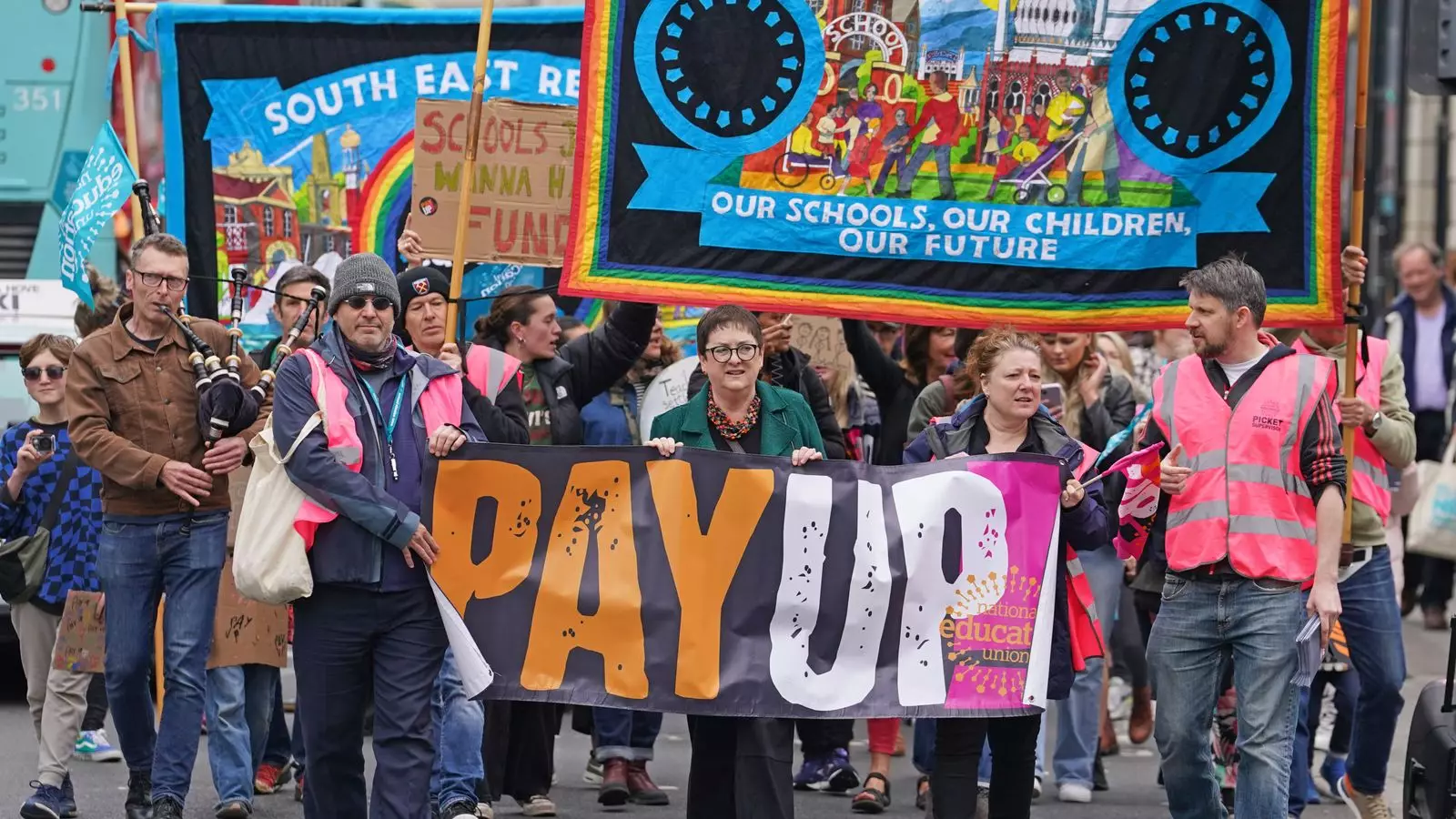The recent proposals for above-inflation wage hikes for public sector workers in the UK have raised concerns about the potential cost of not reaching a deal. With recommendations for a 5.5% pay increase for teachers and NHS staff, the estimated cost is around £3bn. However, the Labour government has emphasized that their fiscal rules are “non-negotiable,” creating uncertainty over whether Chancellor Rachel Reeves will approve the proposed increase.
If all public sector workers were to receive a 5.5% rise, economists estimate that the government could need up to £10bn to cover the cost. This poses a significant challenge for the chancellor’s upcoming budget, particularly as the government had budgeted for a smaller increase, ranging from 1% to 3%, in line with the current inflation rate of 2%. The need for additional funding could potentially lead to tax rises or cuts in other areas.
One of the key concerns highlighted by Treasury minister James Murray is the risk of industrial action if a deal is not reached. Ignoring the recommendations of pay review bodies could lead to strikes and further disruptions in essential public services like schools and hospitals. The long-term impact on recruitment and retention of essential workers, such as teachers, NHS staff, and police officers, is also a significant factor to consider.
While acknowledging the financial implications of approving a higher pay rise, the government has emphasized the importance of considering the recommendations of pay review bodies and setting out a response that aligns with public finances. Chancellor Rachel Reeves has assured that a decision will be made soon and that the response will be within the parameters of the government’s fiscal rules. The aim is to strike a balance between meeting the demands of public sector workers and maintaining financial stability.
On the other hand, former Tory chancellor Jeremy Hunt has advocated for restraint in public sector pay to avoid the need for tax rises. He criticized Labour’s claims of inheriting the worst economic situation since the Second World War, calling it “absolute nonsense.” Meanwhile, the National Education Union has warned that disregarding pay review recommendations could lead to further strike action, as seen in previous disputes with groups like junior doctors.
The debate over public sector pay deals in the UK highlights the delicate balance between meeting the needs of essential workers and ensuring financial sustainability. As the government navigates the decision-making process, the outcome will have far-reaching implications for public services, the economy, and overall social welfare. Finding a compromise that addresses the concerns of workers while upholding fiscal responsibility remains a key challenge for policymakers in the current economic climate.

Leave a Reply